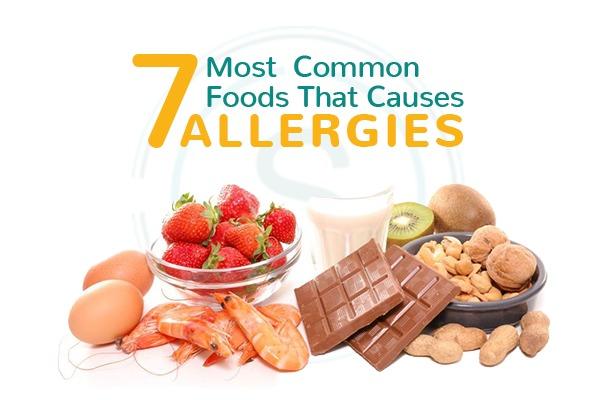Feeling heaviness in a throat or unable to breathe soon after a meal?
It could be due to allergy-causing foods you had earlier. Food allergies are very common and according to some studies, 1-2% of the population in India has some form of food allergy each year.
The substance that causes irritation or allergic reaction in food is called an allergen, a harmful substance that triggers a response that starts in your immune system.
The symptoms of food allergy vary from irritation, itching in the mouth to deadly anaphylaxis. Other signs include abdominal pain, breathing difficulties, vomiting, and swelling in the throat and tongue. You can develop these conditions soon after consuming certain foods or a few hours later.
SMILES, in this article, gives a detailed review of the most allergy-causing foods that help you prevent chronic problems such as asthma and skin disorders.
7 Most Common Foods That Cause Allergies
Here is a list of foods that are known to cause allergic reactions. If you notice any abnormalities after consuming the below-mentioned foods, stop eating those food items immediately.
1. Eggs
Egg allergy is mostly found in children under 16 years of age. Generally, children outgrow allergic symptoms after they cross the age. Moreover, even after being allergic to eggs or food made of eggs or egg-baked cakes as well as muffins can be tolerated by the body. Simply avoid eating egg and egg made dishes like omelettes and half-boiled to prevent egg allergy.
2. Milk
Milk is another dairy product that children, especially 3 years or less, are most allergic to. Consumption of milk, particularly cow’s milk causes acidity, vomiting, swelling, and skin rashes. If found allergic to milk, you must avoid all milk-based products like cheese, paneer, curd, and ice cream.
3. Peanuts
Peanut allergy is very common and has the most potential of turning into something interesting and life-threatening. Interestingly, if you have a peanut allergy you are more likely to develop the allergy. People who are allergic to peanuts develop a breathing problem, swelling, or skin rash as soon as they consume peanuts or dishes made with peanuts.
4. Gluten
Gluten is a type of protein that is especially found in wheat. Consuming wheat may lead to digestive problems, vomiting, rashes, or swelling for some people. It may be due to the gluten sensitivity or due to the wheat grain itself. Avoid the consumption of wheat or wheat-based foods and see if the symptoms of food allergy prevail.
5. Soy
Allergies with soy are also one of the most common allergies in many, including infants. The proteins contained in soy may cause allergic reactions such as the runny nose, itchiness, rash, and asthmatic conditions. Soy and soy products including baked food and meat-based foods must be completely avoided to be safe from any such allergic reactions.
6. Sesame seeds
This seeds can cause allergen. Some of the symptoms of sesame allergy include allergic rhinitis, oral allergy syndrome, or even anaphylaxis. These seeds are high in protein, therefore, it creates allergies when your immune system is weak. Hence, it is best to avoid foods with sesame seeds or cooked in sesame oil.
7. Raw fruits and vegetables
Several people tend to suffer from allergic symptoms when they eat raw fruits or some nuts in their raw form. This is known as Oral Allergy Syndrome (OAS). The best way possible to manage this type of allergy is to eat vegetables after cooking them. Foods needed to be eaten in raw form, it is best to avoid the food.
Unlike food allergies are caused when your immune system incorrectly identifying some of the proteins in food as harmful. This can cause life-threatening reactions, and the only treatment is the excluding of the food from your diet.
If you suspect you have a food allergy, speak with our health experts at SMILES.

